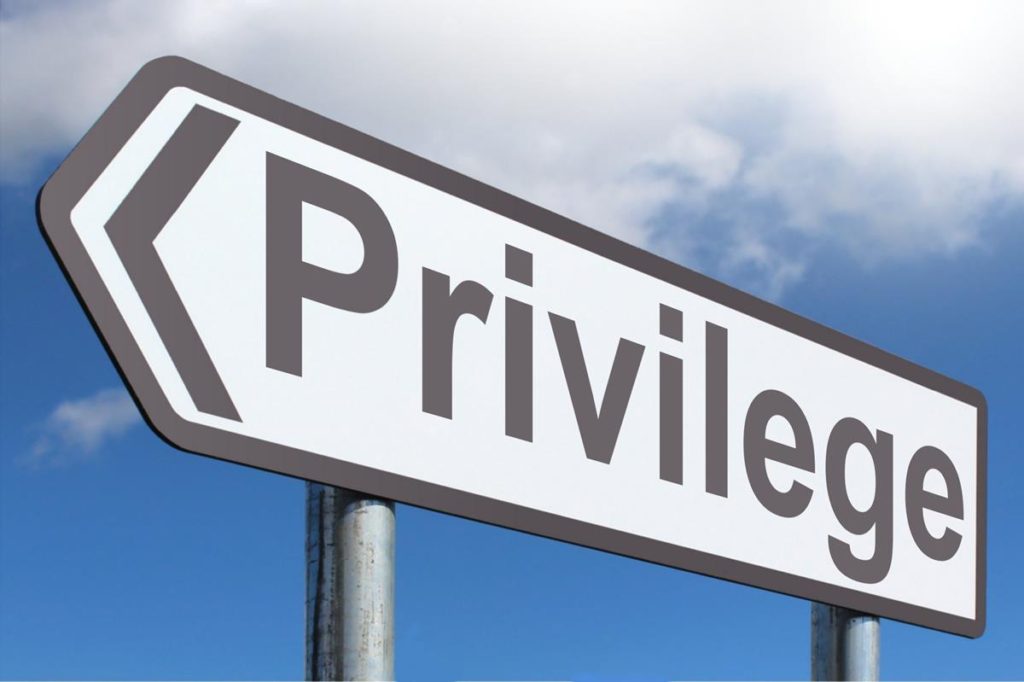
During the current pandemic, there is much talk about those who are privileged and those who are not. The concept of “privilege” is both interesting and multi-faceted. It is often associated with the perspective that someone has an advantage that another does not. That advantage is generally seen as financial, which does indeed afford many advantages in the world. If we remove the concept of privilege from the lens of financial abundance, however, there are many other layers of perceived privilege in the world: gender, skin color, geographical location we grow up in as children, family of origin, first-borns, attractiveness, intelligence, and others. We are born into most of these perceived advantages.
Digging a little deeper, the concept of privilege gets yet more complicated. For example, is it a privilege to be born into a family of wealth where there is great family disharmony and a disproportionate emphasis is placed on the material in life, where individuals are rich in goods but poor in spirit? Or is there more privilege being born into a family with very meager means, yet a family that laughs, loves, and is very connected? It all depends on perspective.
What about culture? Is it a privilege to be born into a culture of materialism (such as the U.S.), with material gain and acquisition as the guiding ethos, making it much harder for many to connect with their soul’s purpose and to find true meaning in life because they have bought into an illusion? Is that an advantage or disadvantage?
Because “privilege” as a concept can get very murky when viewed from different levels, I would suggest that instead, we think in terms of “resources.” Resources that are correlated with human happiness and well-being include, but are not limited to: positive relationships, positive emotions, good health, volunteering service, having enough money to meet basic needs, finding meaning in life, engagement in passions, emotional stability, and successes. Money guarantees none of the above other than the ability to meet basic needs.
There is also space for a broader view that allows for the possibility that each soul has chosen it’s particular family and the culture into which it was born to offer it specific opportunities for growth in this lifetime. We must be careful not to judge the situations of others as wrong or unfair, for we truly cannot know the greater picture. What may look like privilege, or the lack of, can be in perfect alignment with that soul’s choice. At the same time, we can act with compassion to all and commit to using the resources and advantages available to us to raise the consciousness of those around us. We can promote Oneness over separation, Love over fear, power with rather than power over.
Is it important that humanity’s consciousness move from “what’s best for me” to “what’s best for the greater good?” Absolutely. Would that mean a living wage, access to health care, a revised educational system, adequate food, shelter, and housing for all? Surely. And who will bring that about? Well, it will likely be those who are generally considered to be “privileged.” It’s very hard to thrive when you’re just trying to survive. Those who have the time, the money, the social connections, the intelligence, and most of all, the desire, are the ones with the greatest responsibility for bringing about change. They are the ones with the greatest opportunity to continually stress, in all their interactions, that the human family is an interconnected system and that each person is indeed, a part of our own heart.
Take the “more” that you have in your life, whether that be financial, a certain ability, a strong support network, or your 20,000 Facebook or Twitter followers, and use those resources. Release the guilt and celebrate them! Be grateful for them! Enjoy them! But most of all, harness them to move toward your greatest vision of Love, for that is the greatest “privilege.”
With love,
Steven
